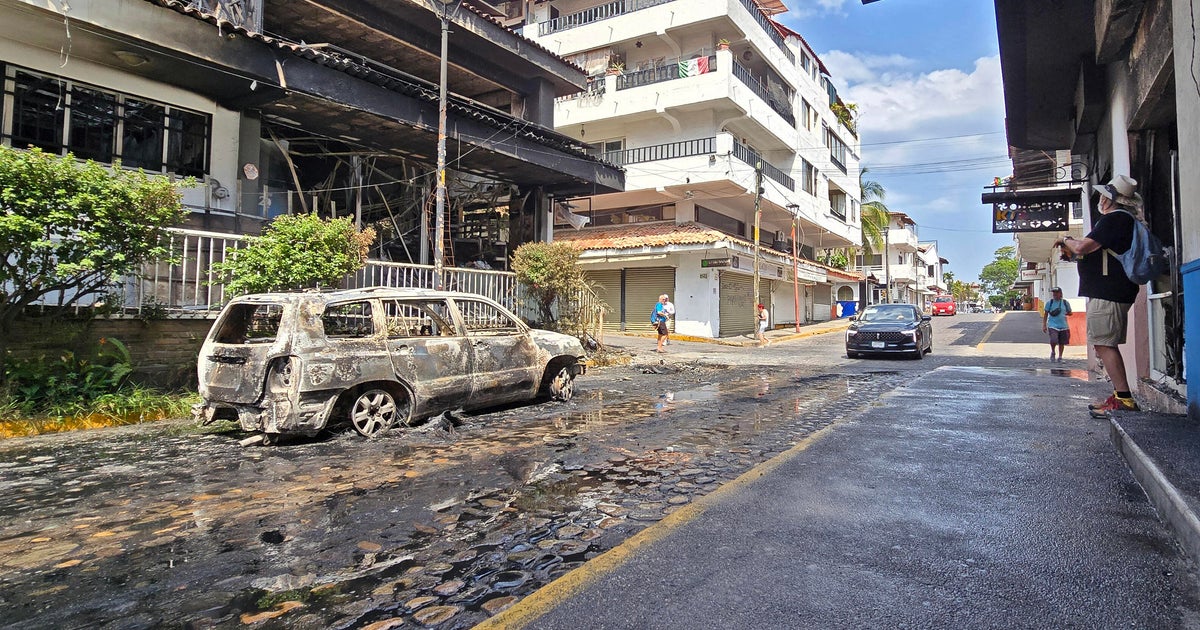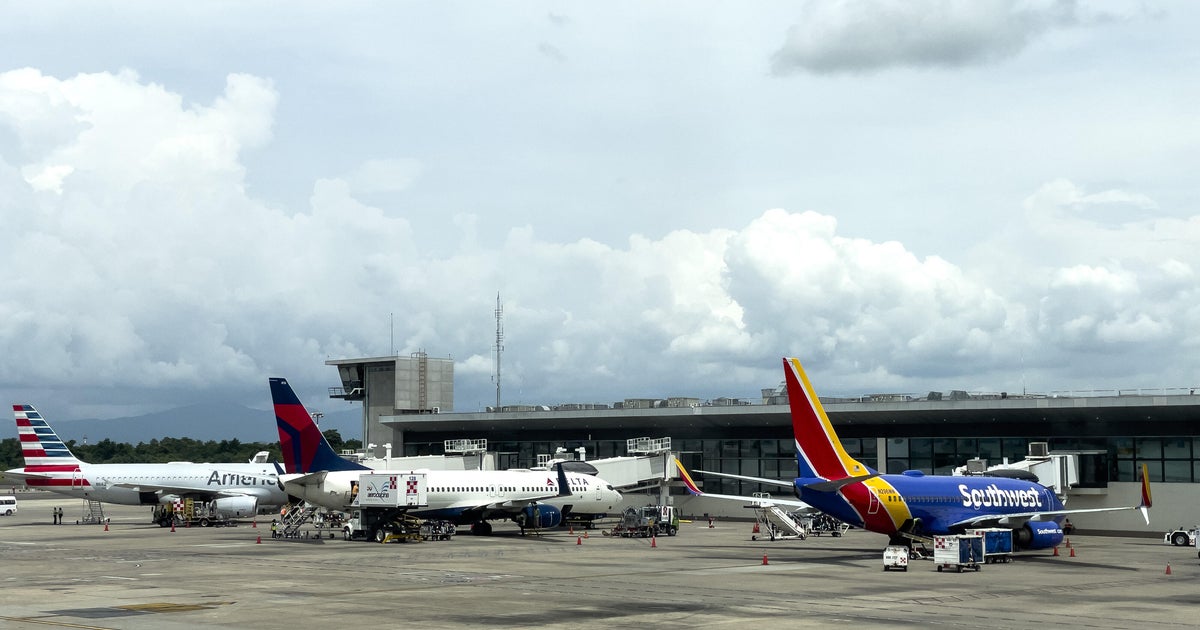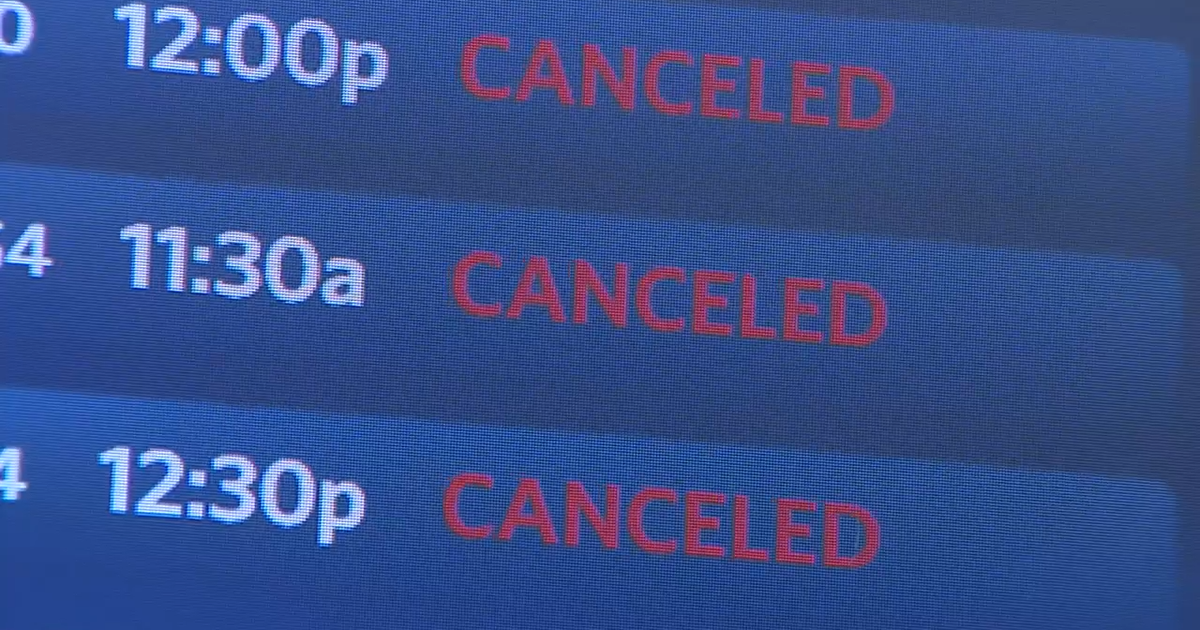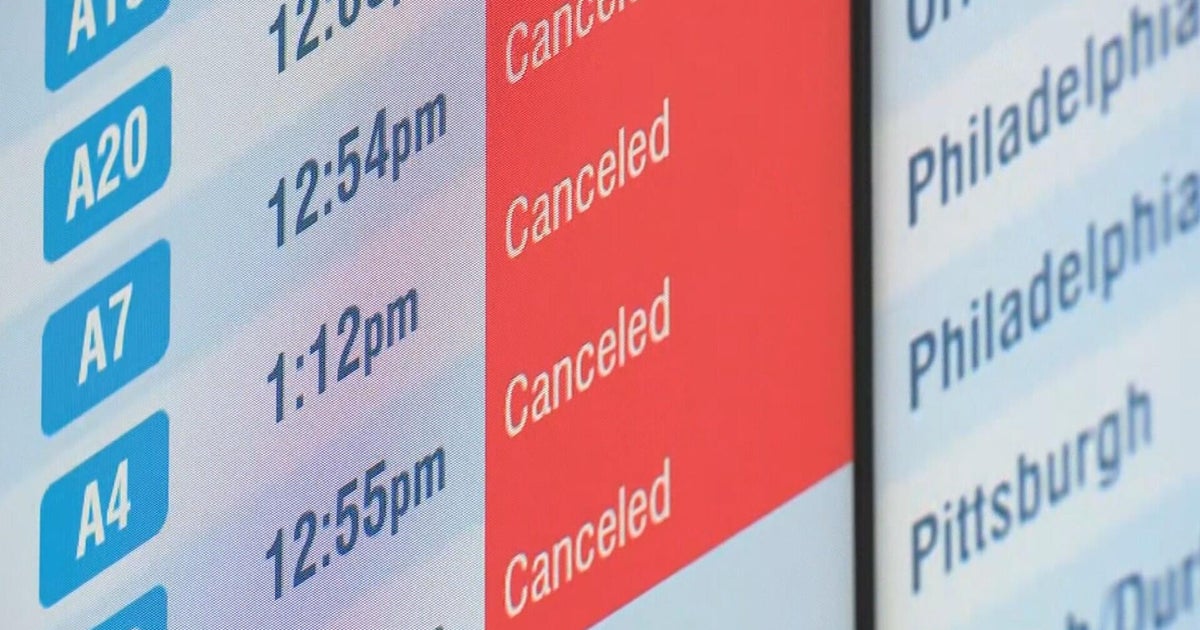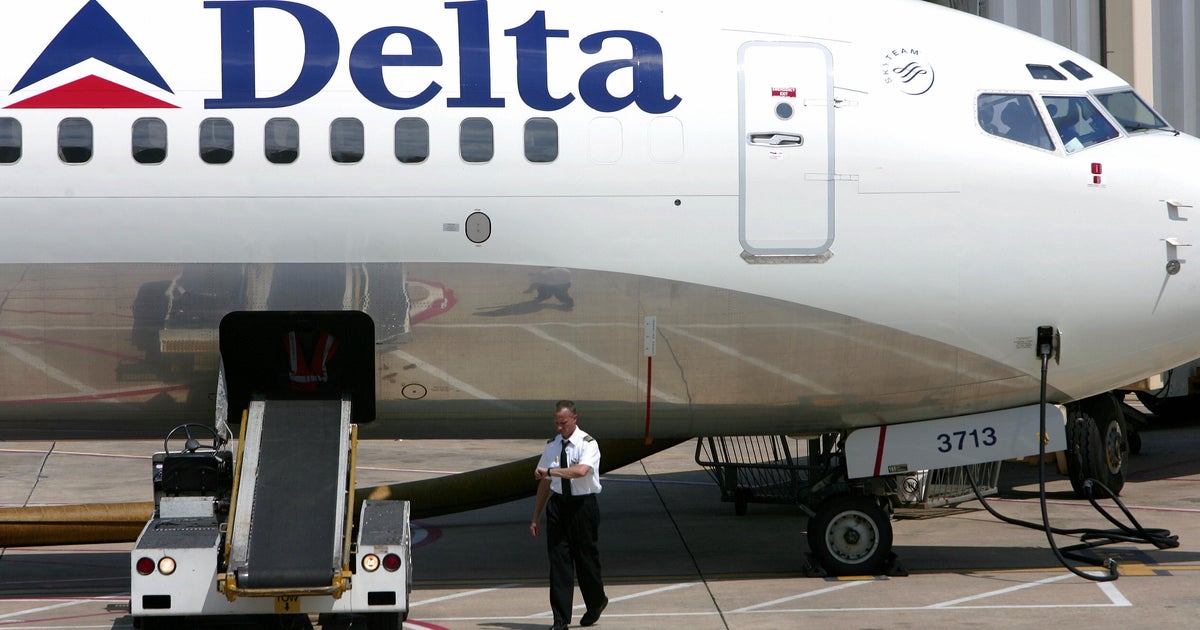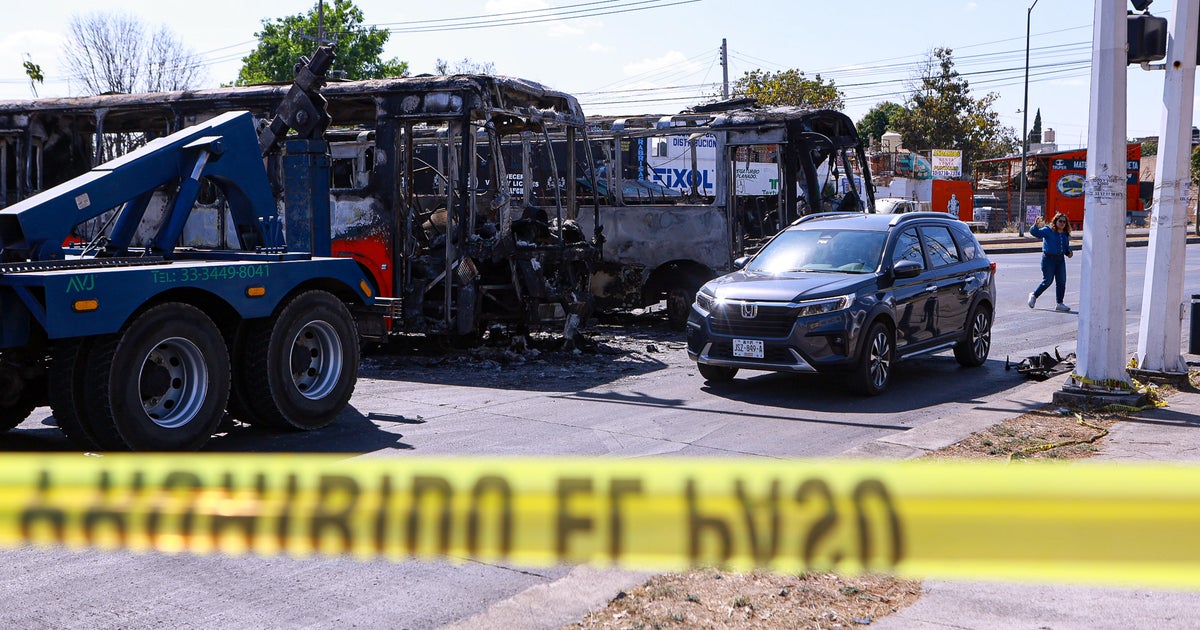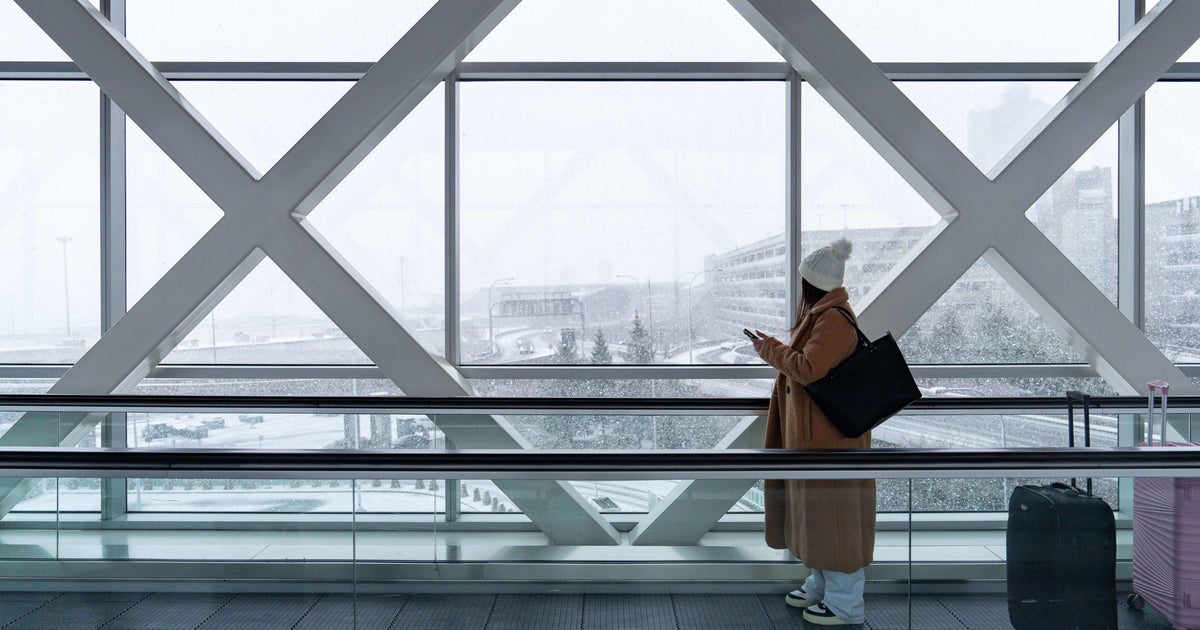Airlines Start Canceling Flights As Irene Nears
MIAMI (CBS4) – Airlines have started canceling flights and moving planes out of the way as Hurricane Irene barreled toward the U.S. mainland and it's already causing problems at South Florida airports.
At Fort Lauderdale Hollywood International Airport on Friday, there was a mad rush to beat Irene to the punch. Passengers are trying to high tail it out of South Florida to reach their destinations up north before the storm hits.
"We're afraid we'll either be delayed or canceled," said New York bound passenger Adrian Crespo.
A flight that arrived from Washington D.C. carried a group of guys who traveled to South Florida for a bachelor party and are celebrating a happy twist of fate.
"We were worried Irene was hitting Florida but now our vacation is going to be nice," said passenger Band Nguyen.
For travelers headed out of South Florida this weekend, you may be in for trouble.
Angela Faiziev got to Fort Lauderdale-Hollywood International Airport Friday morning only to find their JetBlue flight to La Guardia was canceled. They had to re-book.
"It's very nerve-wracking. After a week's vacation I didn't expect this to happen. I want to get home and relax," said traveler Angela Faiziev. "I'm very disappointed. I wish I had known in advance, traveling with kids, it's hard."
"What the airlines do is make a decision early on and say, 'what flights are we going to cancel' because they have to position their aircraft and crews and make sure they are safe and can resume operations Monday," said Greg Meyer a spokesman for Ft. Lauderdale/Hollywood International Airport. "They are sending out the automated messages to the passengers to tell them that your flight is canceled, that you'll need to make other arrangements."
As of 11 p.m. Friday night, there are 24 canceled flights in Fort Lauderdale, most in the Bahamas and 7 delayed or canceled flights at Miami International Airport. More cancellations are expected on Saturday.
American Airlines and its American Eagle affiliate, with an extensive network in the Caribbean, canceled 126 flights on Thursday. Most were in the Bahamas and South Florida, including Miami, a jumping-off spot for flights to the Caribbean and Latin America.
Delta Air Lines reported four cancellations, and United one. Those and other airlines were watching Irene's path before deciding how many flights to scrub and where on Friday.
Even before Irene's arrival, unrelated thunderstorms were causing delays of up to two hours Thursday at major airports in the New York and Washington areas, according to flight-tracking service FlightAware. The service's CEO, Daniel Baker, predicted that Irene-related cancellations would pick up Friday afternoon and become significant on Saturday.
The storm is expected to come ashore in North Carolina on Saturday then churn up the East Coast, bringing heavy rain and high winds to Washington, Philadelphia and New York on Sunday.
Rail travel will also be affected. Amtrak announced it will cancel most passenger service south of Washington on Friday, Saturday and Sunday. Amtrak still planned to operate trains between southern Virginia and Washington and between Atlanta and New Orleans.
In NYC, subways, buses and trains will halt at noon Saturday, an unprecedented move by transportation officials.
The airlines' preparation reflects a new approach to dealing with big storms. In recent years, they have waived ticket-change fees and canceled flights long before storms arrive. That has helped reduce the number of travelers and flight crews who get stranded at airports. Canceling flights ahead of time keeps planes out of the path of damaging storms and lets airlines resume normal schedules more quickly after the bad weather passes.
But sheltering planes far from a storm carries risks. If the storm changes path and misses big airports, hundreds of flights will have been canceled unnecessarily.
Irene presents another challenge. Because major travel hubs such as Washington and New York are in its potential path, flights that are canceled or delayed there tend to ripple across the country.
"Most everyone expects New York to get hit, so you're obviously not going to leave a lot of planes on the ground in New York, waiting for a problem," said Tim Smith, a spokesman for American Airlines.
The airlines announced policies for changing trips free of the normal ticket-change charges.
Travelers on American, United, Continental and Delta could change flights to about two dozen Eastern cities. The policies differed — American let passengers delay trips up to two weeks, others were more restrictive as of Thursday afternoon.
When a big storm threatens to delay or cancel your flight, here are some tips:
1. CHECK YOUR STATUS
To avoid getting stranded at the airport, check your flight status early and often. Check at least once on the day you're flying and again before heading to the airport.
2. PREPARE
Once you're ready to head to the airport, come prepared. Write down your flight number and departure time. Do the same for similar flights. This will make things easier if the airline lets you change your flight for free and you need to rebook with an airline agent.
3. WORK ALL THE ANGLES
If you're already at the airport when your flight is canceled, it's time for double duty. Walk over to customer service. While in line, dial the customer service number. You'll probably reach someone on the phone before getting to the front of the line. Want a third option? Try Twitter. Some airlines have already begun to help stranded passengers over the social media site.
4. CAREFUL ABOUT CHANGES
If you push back your flight, be sure about your new plans before you lock them in. Otherwise, you'll be out $150. Many airlines only waive change fees once in bad weather.
5. VOUCHER OR CASH
If you cancel your booking altogether, the airline might offer you a voucher for a future flight. But you can ask for cash instead.
